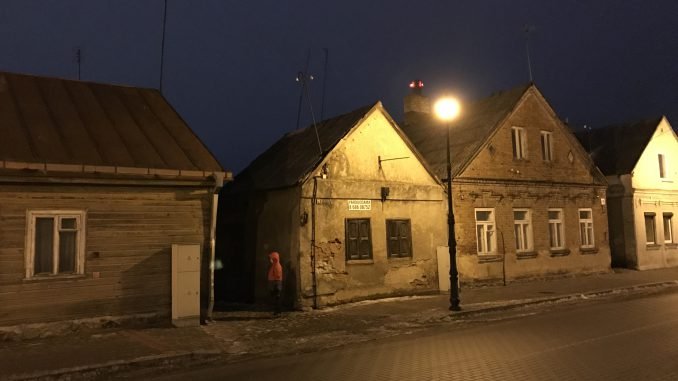
8-10 regional centres should be identified, infrastructure should be created in them, improving transport links with surrounding towns and villages, investing and seeking there and seeking to attract business, creating jobs. This is the basis of how economist Gitanas Nausėda imagines the regions could be saved. Minister of Economy Mindaugas Sinkevičius thinks similarly, pointing out that investment should be viewed on the basis of financial returns, rather than wishes and convenience.
Lithuanian Farmer and Greens Union Chairman Ramūnas Karbauskis has said that the emptying regions can be saved by directing investment to them and creating the necessary infrastructure. The politician recalls the words of Raimondas Kuodis that eventually all that will be left is two cities and a retirement home if things continue as they are. Karbauskis stresses that civic infrastructure is crucial, stating that “No person would ever invest in a town which no longer has any school, library or culture centre.” The politician is certain that the regions can be made appealing again, noting that some of the regions even have adequate, intact infrastructure.
Economist Raimundas Kuodis has said that economic success only follows the three major Lithuanian cities, with the rest of the country having been left a retirement home of economically inactive people, retirees or people living on benefits and not seeking employment. He believes that the situation is essentially irreparable because the demographic trends cannot be overturned in the short term, based on his predictions in the best case scenario it will be Vilnius, Kaunas and to some extent Klaipėda left economically active.
G. Nausėda – two and a half cities will be left if we do nothing
G. Nausėda, the advisor to the SEB bank president is uninclined to believe either of the two extremes. He says that indeed 2.5 cities will be left if nothing is done, but does believe that it is possible to overturn the situation by establishing 8-10 regional centres, focusing on infrastructure development in them, improving transport links with surrounding towns and villages in order to enable people from surrounding areas to easily commute to their jobs. He notes that such regional centres should not, however, become alike Vilnius, Kaunas and Klaipėda because this would not obstruct the degradation of the regions.
The economist believes that it is simpler for people to simply emigrate rather than move to a different city or town in Lithuania from their dying region because, paradoxically, it may be more affordable to move to Dublin or London, rather than attempt to establish a life in Vilnius or Kaunas.
Despite his somewhat more optimistic outlook that regional centres can be created to counteract the deterioration of the regions, he admits that it will all take 5-10 years and it could very well be too late.
Better more for a few than little for everyone
Minister of Economy M. Sinkevičius says that both he and the cabinet intend to hold to their positions declared prior to the elections to revitalise the regions, but he stresses the need for wise and carefully weighed investment.
“If for example the Kaunas region has eight municipalities and limited financial opportunities to invest in certain cultural heritage objects in the region, let us decide what could interest both local and foreign tourists and invest in that which can provide returns on the investment,” the minister said. He goes on to state that similarly “If we lay a road, let us ask ourselves – do mushroom pickers need it, does the road lead to an employer, an opportunity to construct a business. We say that it suffices to base investment on wishes and convenience, it is now time to base investment on economic factors. Not all municipalities will like it, but I believe we cannot go on otherwise.
We cannot lay a road where cars will not drive, we cannot restore a school or kindergarten where there are no children or soon won’t be. It is an economic viewpoint which would be based not on wishes or political goals, but rational economic calculations and prediction.”
G. Nausėda agrees that it is better to invest more into one municipality in a region, rather than a little into all of them, but then decisions regarding transport infrastructure will be needed, a problem partially resolved by employers hiring busses to help their employees commute. Nausėda points out this is an extra expense for employers and centralised decision making will be needed to resolve the matter, perhaps in subsiding public transport.
M. Sinkevičius is convinced that revitalising the regions is not an impossible task and points to the case of Marijampolė as an example. He points out that in 2016 a Danish window maker moved into the town, with an expected thousand jobs to be created and investment in the range of a million euro. “If foreign business saw no point, it would not enter our regions,” Sinkevičius concludes.

Be the first to comment